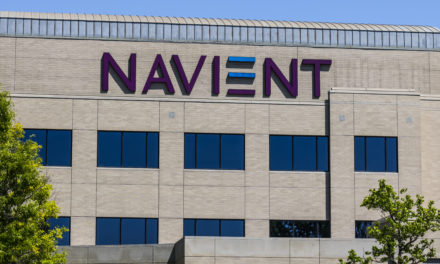On December 4, 2020, Secretary Betsy DeVos announced that the Student Loan Forbearance Period has been extended an additional month. This isn’t the first time that the payment and interest suspension period has been extended, and it may not be the last. But either way, you need to be prepared to resume your student loan payments at the end of next month. Here are some key tips for preparing yourself.
Evaluate Your Budget
In all likelihood, your monthly budget looks much different than it did a year ago. With the COVID-19 pandemic, we’ve all had to make adjustments in how we spend our money. If student loan payments aren’t in your quarantine budget, it’s time to start thinking about how you’ll reincorporate them.
If that sounds like you, you’re not alone. Over 37 million student loan borrowers haven’t made a payment in months. It’s time to inventory your finances, taking into account any shifts in your income in the last year, large purchases you’ve made, or other life events – such as having children. There are plenty more factors to consider, so make sure you’re paying attention. Looking at your purchase history on your bank accounts and credit cards is a good starting place. It’s essential to get a new budget in line now to avoid a financial headache come February 1st.
Discover Relief Options
If resuming student debt payments seems like an overwhelming task, it might be time to look into relief options. Here are some of the most common ways to reduce your student loan burden:
- Debt consolidation can be a great way to reduce your monthly payments by combining separate student loans into one account with a single, manageable payment.
- Loan recalculation is another way to easily reduce your monthly payments if your income has shifted since the beginning of the forbearance period.
- Loan forgiveness options are available for those in specific career fields, such as teachers, healthcare workers, and military members.
- Income-driven repayment plans are an option to look at that will restrict federal loan payments to a capped percentage of your monthly income.
Make Sure You’re Staying Up-To-Date
There is a lot of talk going on in the US government about the student debt crisis, and for a good reason, with the outstanding debt resting just above $1.6 trillion. It seems we get new updates on student loan payments every day. As of now, President-elect Joe Biden has stated that he will immediately absolve $10,000 of student debt from every borrower currently paying on their loans. But, there are complaints from either side of the political aisle on this. Some conservatives contend that absolving debt puts an unnecessary strain on American taxpayers. Meanwhile, progressives argue that $10,000 isn’t nearly enough, with the average debt per borrower sitting just under $40,000 and plenty of borrowers with much more than that.
This is all to say that the student debt crisis is a hot topic in Washington, which means future changes are not unexpected. Be ready to shift your plans if the forbearance dates shift again or if absolvement plans change. The age-old rule-of-thumb is to hope for the best and prepare for the worst. A vote to eliminate student debt would provide much-needed relief to millions of highly-educated Americans carrying as much as 30-year financial burdens. However, ‘needed’ and ‘expected’ are very different things. You should plan to pay for the full duration of your loan payment period to prevent unwanted surprises. If the government passes a larger-scale relief measure eventually, it will mean you have that extra money in your budget to reroute as you need.
If resuming your student loan payments will cause unmanageable financial stress to your household, the National Student Debt Forgiveness Center can help. Our staff members are experts in debt forgiveness, refinancing, consolidation, and more! Contact us today to learn more about how we can help you. Then refer a friend and receive a free $25 gift card!







Select Page